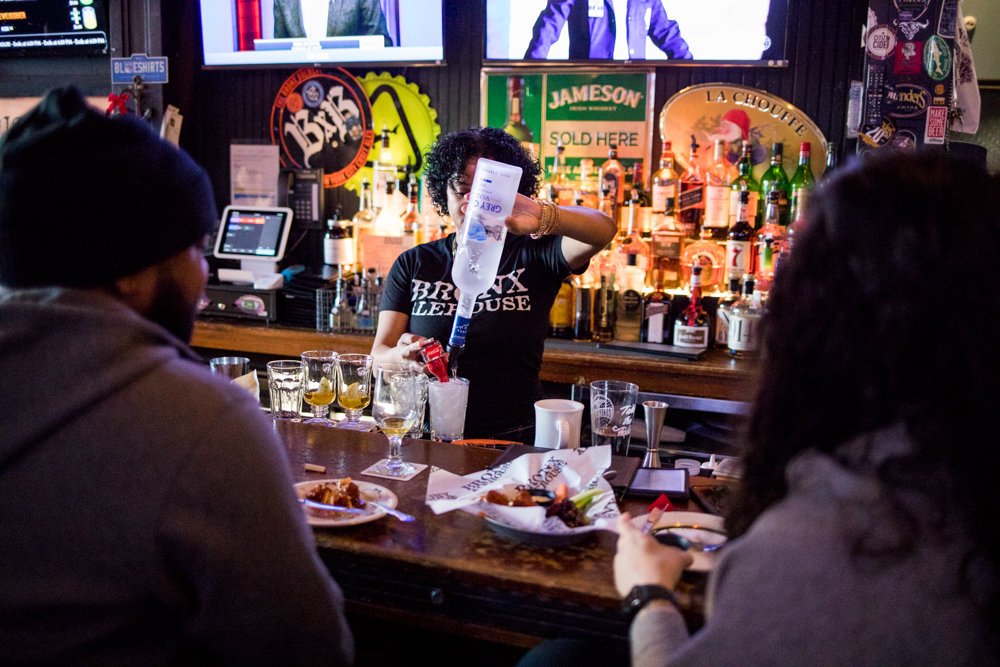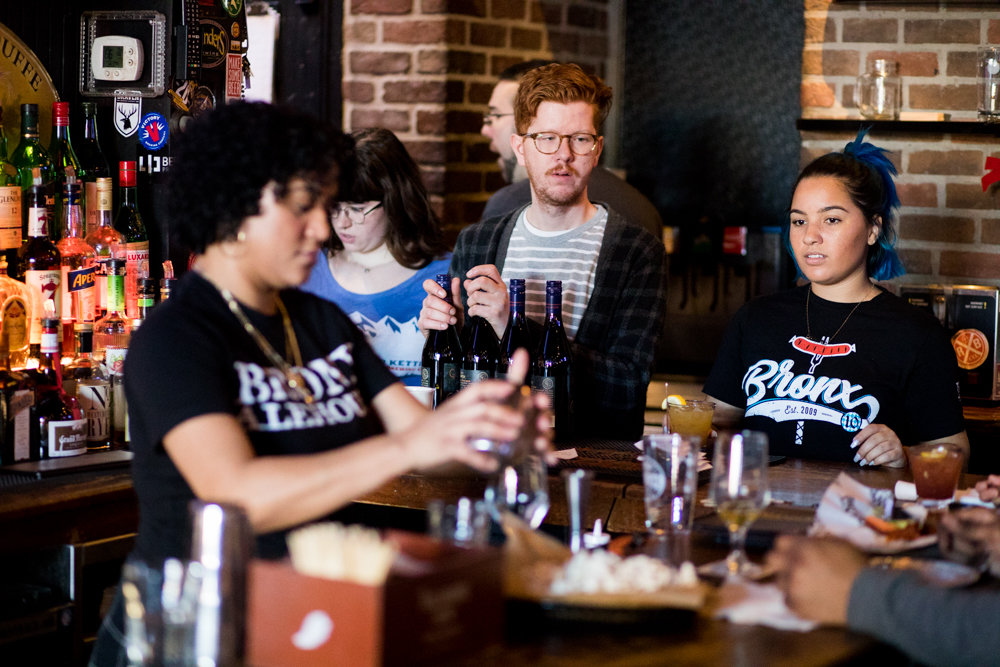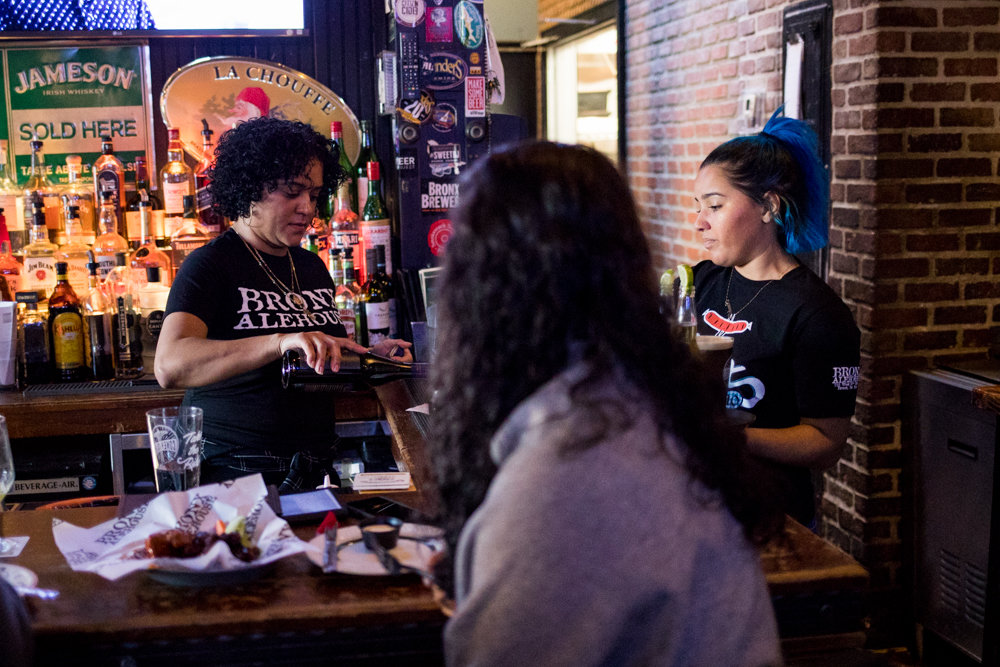Minimum wage hike a boon for struggling workers
Businesses, however, still have to find ways to make it all work
Chris Cordiano — tall and lean — glided across the North Riverdale Dunkin’ to grab customer orders during the afternoon rush. And he’s doing it probably a little less hungry than he was just a couple weeks before.
That’s because minimum wage employees are welcoming heftier paychecks, the latest in a series of increases thanks to legislation Gov. Andrew Cuomo signed as part of his 2016-17 state budget. The biggest increase this year — which actually took effect Dec. 31 — came in New York City, where employees working at companies with more than 10 employees, including fast-food establishments, are seeing their lowest legal pay jump by $2 to $15 an hour. Employees at smaller companies in the city, meanwhile, are getting a bump of $1.50, to $13.50 an hour.
In Westchester County and Long Island, rates are climbing from $11 to $12, while the rest of the state increases from $10.40 to $11.10.
And all of it is still well above the federally mandated rate of $7.25 — unchanged since 2009.
‘Good for employees,
bad for customers’
Wage boosts here have pushed New York into the thick of a movement to raise the minimum wage across the United States, according to the National Employment Law Project. In fact, the state is among seven others — Arizona, California, Colorado, Maine, Massachusetts, Missouri and Washington — phasing in minimum wage increases that eventually will climb to between $12 and $15 an hour, while 13 cities and counties were set to reach or exceed $15 by the start of the new year.
“I think it’s good for employees, bad for customers,” Cordiano said of his fatter paycheck, now that regulars have to shell out slightly more for coffee and doughnuts as he said Dunkin’ raised prices to compensate.
Still, along with more food, the wiry barista also is looking forward to going to the movies — a luxury he’ll probably splurge on occasionally now that he’s raking in more.
“Hopefully it all works out well, because I don’t want to see too many people complaining that prices are too high now,” Cordiano said.
Some — like for a small black coffee — actually are quite nominal, jumping just a few pennies. “But that’s for one item,” Cordiano said. “Imagine you’re getting five items. The change adds up,” like for dozens of doughnuts — whose price leapt a dime apiece.
Asif Khan, Cordiano’s colleague at the West 259th Street Dunkin’, is grateful he can now afford some necessities that may have been out of reach before his wage increased.
“I’m working part-time, so I actually need that extra cash,” Khan said. “I can use it for what I want to buy,” beyond paying bills and for a roof over his head. “I don’t think I’ve bought new shoes in a while.”
Nor does he think customers are all that irked about paying modestly more for a sugar-and-caffeine jolt.
“Most customers don’t actually pay attention to it,” said Khan, who’s toiled at the North Riverdale Dunkin’ for around two years. In fact, it’s mainly longtime regulars who even notice. “They understand the price is going up because of the economy.”
Making it work
Yet, minimum wage workers aren’t the only ones affected, as businesses small and large also have to contend with compensating for paying staff more.
“It just means that we have to be more careful in how we spend in certain areas,” said James Langstine, owner of the Bronx Alehouse in Kingsbridge. “We’re not cutting hours or losing employees, but we’ve just kind of made a different effort to figure out other ways where we’re not losing so much money.”
In fact, Langstine claims he already paid the majority of his employees at least $15 an hour, even before the new minimum wage went into effect, meaning it wasn’t a huge hit for his West 238th Street establishment.
“For the last couple years, we’ve found ($15) was kind of the minimum where you could keep and retain a good, skilled staff anyway,” Langstine said. “Skilled people didn’t want to work for” less.
As far as curbing spending in other areas, it hasn’t been anything drastic, Langstine added. “There’s some little tweaks here and there,” including focusing more on managing cost of goods — beer, liquor, food, napkins — sometimes buying in bulk, as well as reining back energy costs where possible.
Even so, “it still remains to be seen how far we’ve closed that gap,” Langstine said. “It’ll take a month or two at least to kind of balance our books and see where we’re at.”
Hence, keeping the alehouse well-staffed means customers may eventually have to fork over a bit more for a brew, if spending less on ingredients and energy can’t make up the difference.
“But we haven’t done that yet,” Langstine said. And if they did, “I hope people understand it’s not that we’re just trying to be greedy and say, ‘Oh, we can get another couple bucks for a beer or a plate of wings.’ It’s more that the cost of doing business has gone up.”
Doing the right thing?
But that’s something Langstine claims he’s already used to, from minimum wage — which has risen annually since 2016 — to rent, which has gone up every year since the alehouse opened in 2009.
Eventually, the city’s $15 minimum wage could take effect statewide, according to published reports. And while some critics claim that could nudge small businesses to greatly `raise prices, slash staff or even shutter, none of that’s been the case at either the Bronx Alehouse or Dunkin’ — so far.
“As long as (wages are) livable,” Cordiano said, “as long as my hours don’t get cut, I’ll be good.”
Langstine, meanwhile, concedes that, in general, running an alehouse is no small feat, yet he’s also aware of his employees’ struggles just making rent, which means paying them a little more “is the least we can do to help people live in this city.”
“You can’t live in this city on $12 an hour, anyway, so we don’t really have complaints about the law itself,” he said.
“Every day is a different challenge in this business. This is just another one.”















